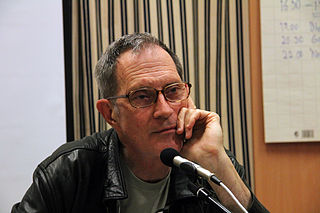A Quote by Ann Beattie
I feel that these stories are being written to articulate certain confusions and disappointments, and I do mean to shake up the reader, and I do hope they're on target.
Related Quotes
I'm an optimist and my heroines seem to be that way, too. It's too much work to be cynical and distrusting. That doesn't mean I create perfect stories and perfect people, however. What this means is that my stories are resolved in a manner that leaves the reader with a feeling of hope and happy expectation . . . and wanting to reach for another one of my books.
My being Indian is possibly the biggest thing that influences my stories. Not just in terms of settings - most of the settings in my stories are Indian - but also in terms of characters and plot. I think growing up in India grew my imagination in certain ways that would not have happened in any other place. I'm also fascinated by the idea of India, and writing stories allows me to explore this. As for thematic elements, they are probably pretty obvious in my stories. I also hope that my stories bust stereotypes at least to a modest extent.
I want my stories to be something about life that causes people to say, not, oh, isn't that the truth, but to feel some kind of reward from the writing, and that doesn't mean that it has to be a happy ending or anything, but just that everything the story tells moves the reader in such a way that you feel you are a different person when you finish.
Evidently, there are many great American writers. But sometimes it can feel as though American fiction is dominated by relatively linear narrative form, with a heavy emphasis on psychological realism. If you limit yourself to a certain kind of American literary fiction, it's easy to forget about the different kinds of books that are being written. You can forget to be ambitious, both as a reader and a writer.
Literature for me… tries to heal the harm done by stories. (How much harm? Most of the atrocities of history have been created by stories, e.g., the Jews killed Jesus.) I follow Sartre that the freedom the author claims for herself must be shared with the reader. So that would mean that literature is stories that put themselves at the disposal of readers who want to heal themselves. Their healing power lies in their honesty, the freshness of their vision, the new and unexpected things they show, the increase in power and responsibility they give the reader.
Don't bend; don't water it down; don't try to make it logical; don't edit your own soul according to the fashion. Rather, follow your most intense obsessions mercilessly. Only if you do that can you hope to make the reader feel every particle of what you, the writer, have known and feel compelled to share."---Forward to Kafka's Short stories
I find I'm so excited I can barely sit still or hold a thought in my head. I think it is the excitement only a free man can feel, a free man at the start of a long journey whose conclusion is uncertain. I hope I can make it across the border. I hope to see my friend, and shake his hand. I hope the Pacific is as blue as it has been in my dreams. I hope.







































